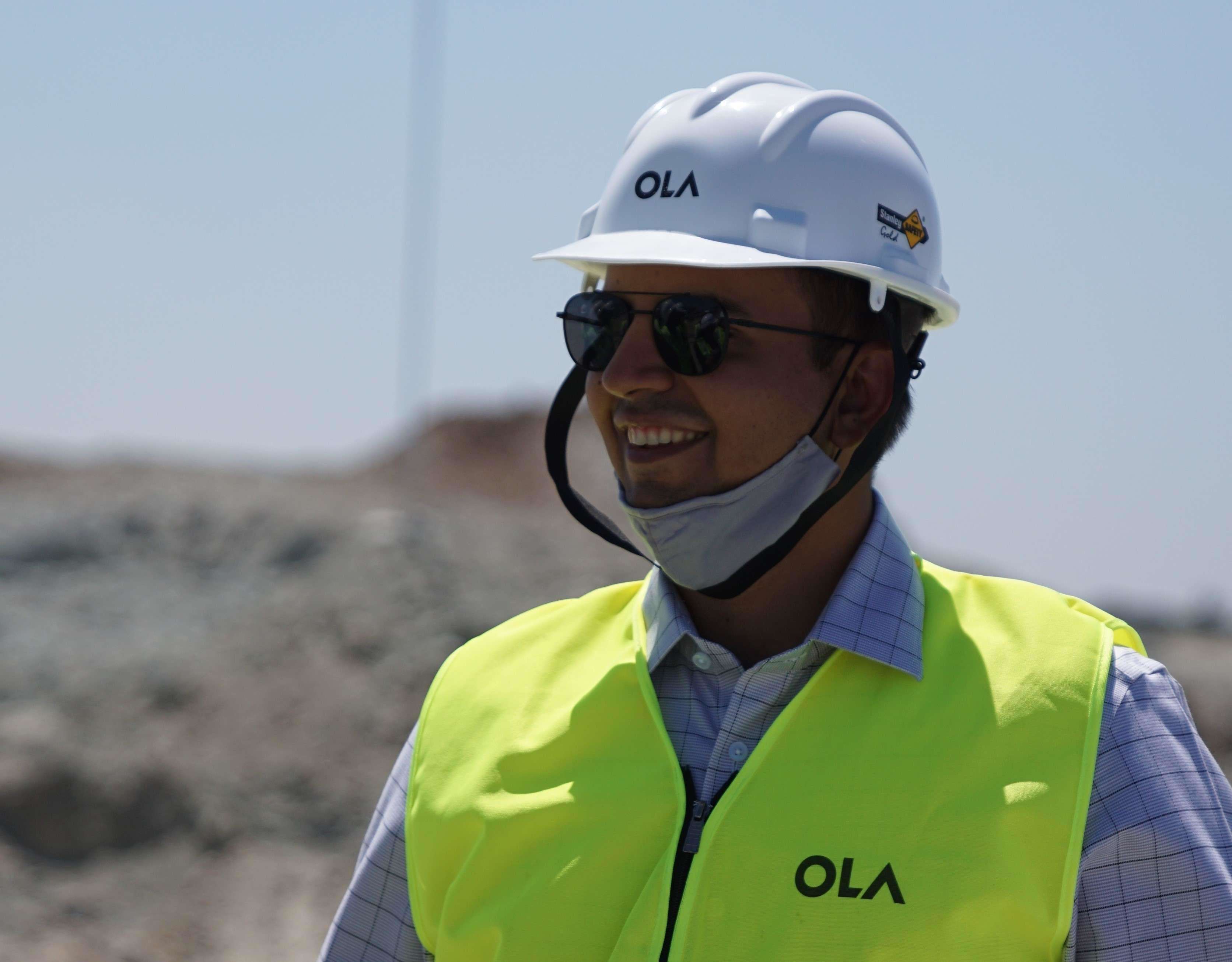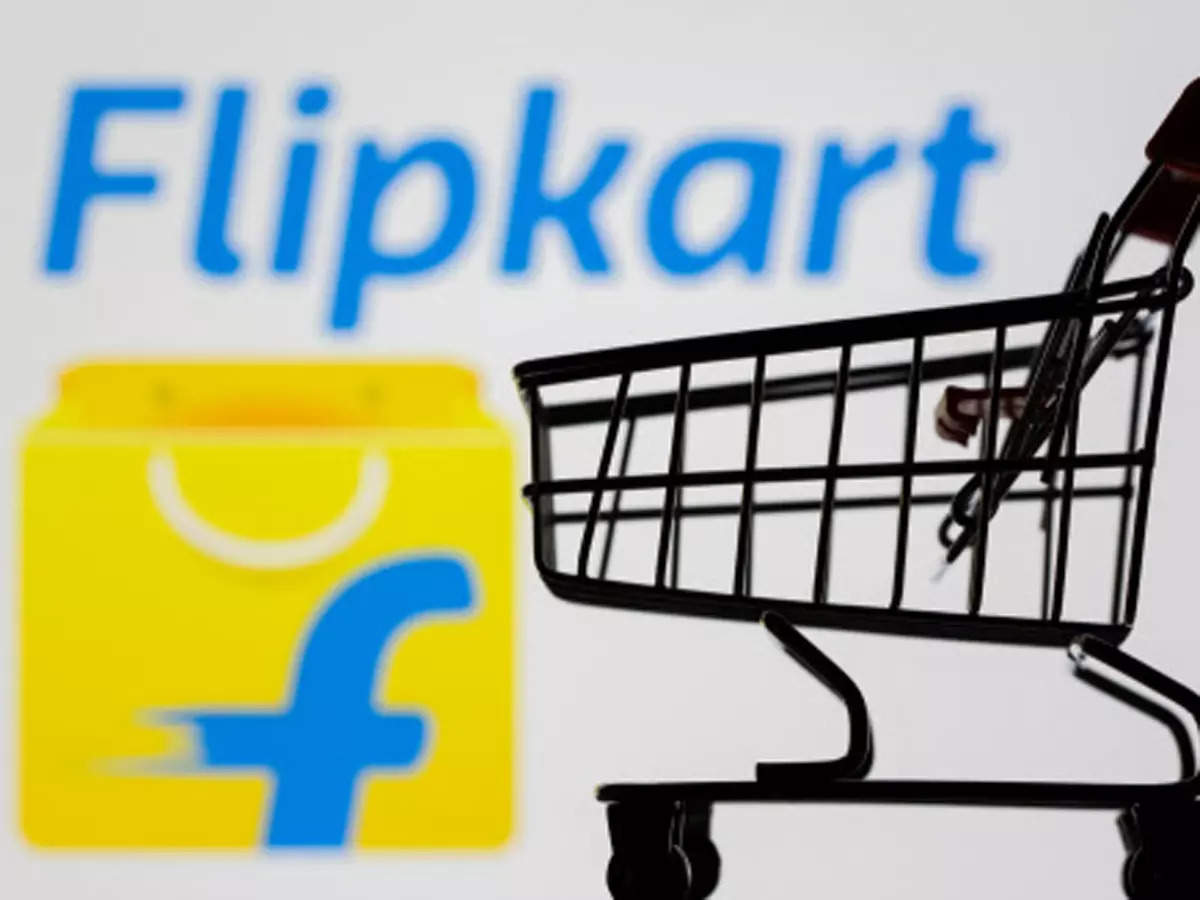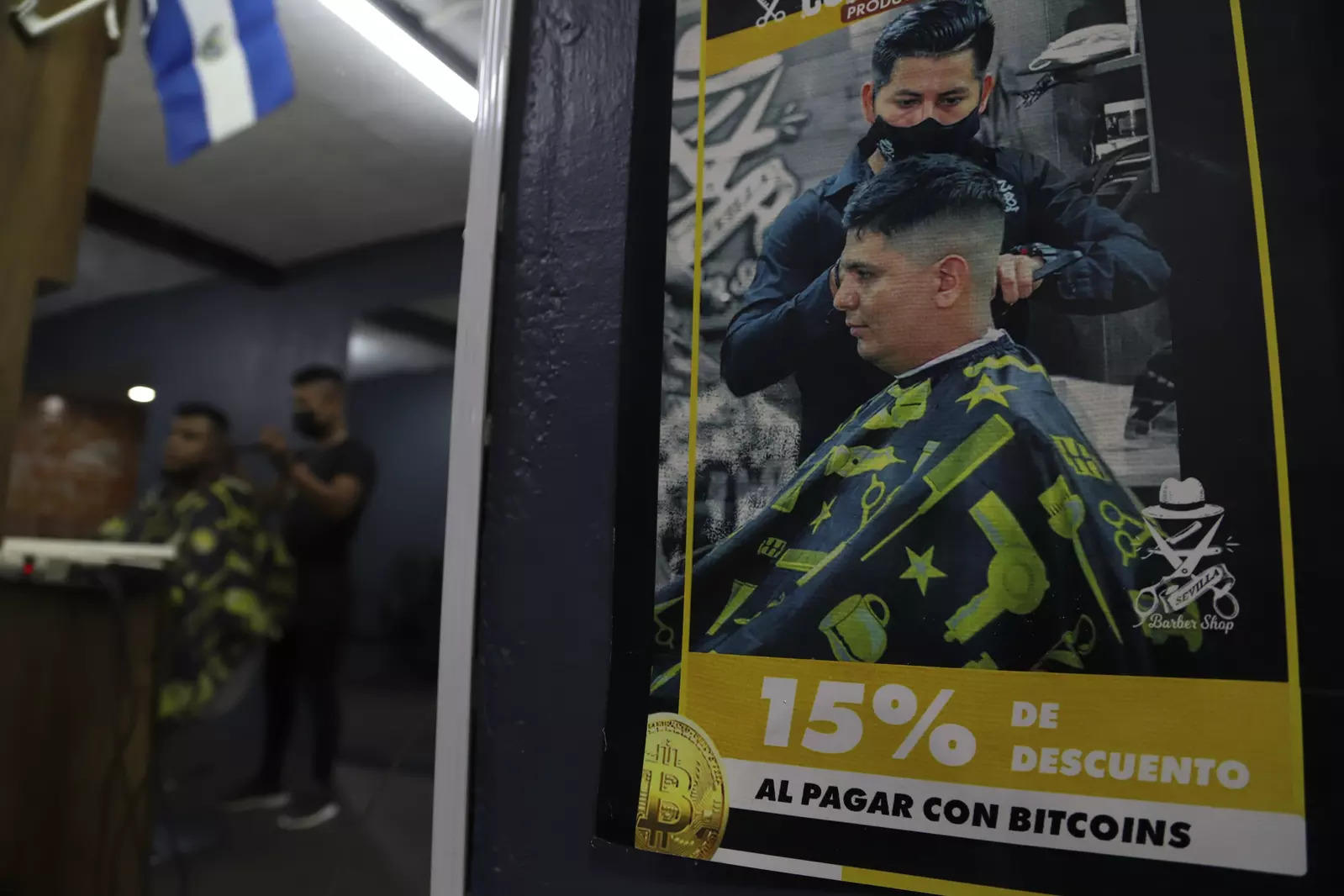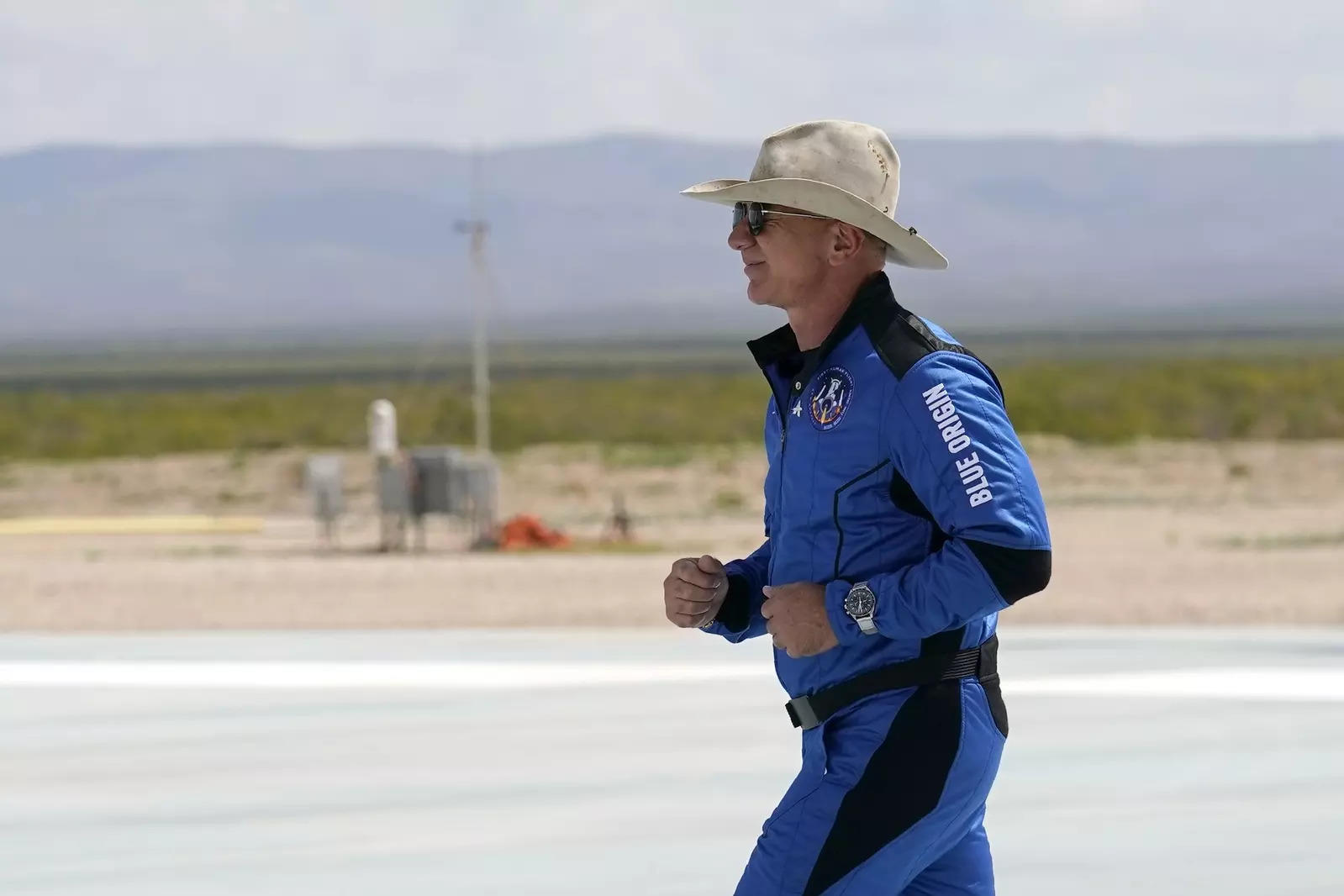 Daily Top 5 Daily Top 5 |
Ride-hailing moves up a gear; Flipkart's D2C ambitions
Want this newsletter delivered to your inbox?
I agree to receive newsletters and marketing communications via e-mail

Thank you for subscribing to Daily Top 5
We'll soon meet in your inbox.
In March, just when it seemed India’s ride-hailing industry was getting back on track, the second wave shunted it off course again. Now, 18 months into the pandemic, Ola reports that its gross merchandise value is finally back to pre-pandemic levels. Fingers crossed on that third wave.

Also in this letter:
 Ola CEO Bhavish Aggarwal
Ola CEO Bhavish Aggarwal
Ride-hailing, one of the sectors hit hardest by the pandemic, is inching towards a full recovery to pre-pandemic levels. That’s of course assuming there’s no third wave of Covid-19 or that it isn’t half as devastating as the second.
Driving the news: Ola’s gross merchandise value, or GMV, crossed pre-pandemic levels in the week to August 31, CEO Bhavish Aggawal said earlier today. GMV is a metric that measures the total value of sales over a certain period of time.
He added that the recovery from the second wave has been three times faster than from the first. “Clearly India is up and about!,” he tweeted.
Big boost for autos: Aggarwal said 10 million people used Ola for the first time in fiscal year 2021. “As people move, they want to feel safe so they’re switching to personal or shared mobility instead of public transport,” he said. “Many are moving to autos, taking our auto business to almost 150% of pre-covid levels.”
More than 300,000 Ola drivers are now vaccinated, Aggarwal said. “We’re onboarding more driver partners, entering new cities and building new products to better serve all your mobility needs post covid.”
The Covid doldrums: India’s ride-hailing sector—dominated by Uber and Ola—came to a halt during the nationwide lockdown last year. They had recovered more than half of their business by January, only to be crippled again by the second wave.
In March, the sector clocked around 78 million rides, 69% of what it had recorded in pre-pandemic months last year, according to a report in May by RedSeer Consulting. The report predicted that the numbers would continue to fall in the face of imminent lockdowns and that ride-hailing would fall by another 30-40% in the coming months.
Smart move: Ola, however, used the pandemic to diversify its business. The startup is setting up the Ola FutureFactory near Krishnagiri in Tamil Nadu to make electric scooters and launched the first models last month.
IPO plan: The Bengaluru-based startup is exploring an IPO early next year, seeking to raise $1.5-2 billion at a valuation of $12-14 billion, we reported on August 31. The IPO is likely to be an equal mix of primary shares and secondary shares. It has hired investment banks—including Morgan Stanley, Goldman Sachs, Kotak Mahindra, Citigroup and JPMorgan—to help file its pre-IPO papers with the markets regulator in the next two months.

Flipkart said it has launched a programme, called Flipkart Boost, to spot direct-to-consumer brands on its platform and help them grow.
How it works: For a fee, Flipkart will offer its expertise to early-stage brands in areas such as planning, advertising, cataloguing, logistics, quality control and mentoring.
Through the programme, Flipkart will shortlist brands on certain criteria such as growth potential, revenue run-rate and customer focus. They will then be invited to pitch their ideas to sector-focused venture funds such as A91 Partners, DSG Consumer Partners, Fireside Ventures, Matrix Partners India, Sequoia Capital India and Stellaris Venture Partners.
Flipkart said it tested the programme with a few brands earlier in the year and will pick 100 brands to participate in it this year.
Other D2C ambitions: Flipkart is also an investor in Thrasio-style venture Goat Brand Labs, which was launched by its former executive Rishi Vasudev.
Thrasio, a US company, is the world's largest acquirer of third-party private label businesses on Amazon.com. Many startups in India, including Goat, Mensa Brands and GlobalBees, are trying to replicate this model and have raised significant sums in the past few months.
Also Read: Thrasio-style startups: decoding the new mantra for creating a house of brands
D2C’s Big Bang: D2C brands are finding growing acceptance among consumers, and it shows. We reported last month that the broader D2C space has seen a funding boom, with 146 firms raising a combined $500 million since the start of 2020. That’s almost the same amount they raised in the previous five years.
■ GoKwik, an e-commerce enablement platform, has raised $5.5 million in a funding round led by Matrix Partners India, in which RTP Global and several angels also participated. The ecommerce platform will use the money to expand into the Middle East, North Africa and Southeast Asia, and to hire for its technology, data and product engineering teams.
■ Zoho Corp, India's largest SaaS company, has invested $5 million in Voxelgrids, an Indian startup that builds Magnetic Resonance Imaging (MRI) scanners to foster the development of deep technological capabilities and intellectual property in the country.
■ Flipspaces, a tech-enabled interior designer, has raised $2 million from a consortium of family offices and high networth individuals led by former IIFL AMC CEO Prashasta Seth. The capital will be used to grow the US business, where the Mumbai-based startup claims to have seen 25X growth, and expand its newly launched software-as-a-service vertical.
 A poster inside a barber shop announces discounts to those who pay with bitcoin in Santa Tecla, El Salvador. Photo: AP
A poster inside a barber shop announces discounts to those who pay with bitcoin in Santa Tecla, El Salvador. Photo: AP
El Salvador on Tuesday became the first country in the world to adopt bitcoin as legal tender. Ahead of the rollout, the Central American nation bought 400 bitcoin with a market value of about $20 million. The move temporarily pushed bitcoin prices 1.49% higher to more than $52,680.
The country's president Nayib Bukele said the move is aimed at allowing Salvadorans to save on the $400 million they currently spend annually on commissions for remittances. In June, the country’s Parliament approved a law to allow the cryptocurrency to be accepted as legal tender along with the US dollar.
Quote: "It's going to be beneficial...we have family in the United States and they can send money at no cost, whereas banks charge," said Reina Isabel Aguilar, a store owner in El Zonte Beach, some 49 km (30 miles) southwest of capital San Salvador.
The flipside: Critics say bitcoin could increase El Salvador’s regulatory and financial risks, and polls show Salvadorans are wary of the volatility of the cryptocurrency, which can shed hundreds of dollars in value in a day. To counter this, Bukele has promised every citizen $30 in bitcoin if they sign up for a government digital wallet.
 Amazon founder Jeff Bezos
Amazon founder Jeff Bezos
After conquering ecommerce and flying to the edge of space on his own rocket, Amazon founder Jeff Bezos now wants to cheat death.
The world’s richest man is said to have invested in a startup dedicated to figuring out how to conquer death, according to the MIT Technology Review. Altos Labs, founded in 2021, is working on understanding how biotechnology can be used to reverse the ageing process.
Apart from Bezos, it has also received backing from early Facebook investor Yuri Milner.
Tell me more: The report said that the main focus of Altos Labs is to study Scientist Shinya Yamanaka's reprogramming theory (in which proteins are added to a cell to revert it to a stem cell-like state) as they try to reverse the ageing process of human cells.
The startup, incorporated in the US and the UK, is hiring university scientists on salaries of up to $1 million a year. It is also looking to establish institutes in the Bay Area, San Diego, Cambridge, UK and Japan. Yamanaka, who shared the 2012 Nobel Prize for the discovery of reprogramming theory, will join the company as senior scientist and chair of the scientific advisory board.
Who wants to live forever? Bezos, 57, is said to have a long-standing interest in anti-aging research. In 2018, he invested in San Francisco-based biotech firm Unity Biotechnology.
Google helped create Calico Life Sciences, a research and development biotech company founded in September 2013 with the goal of combating aging and diseases of aging.
There are a number of startups working on reprogramming technology, including Life Biosciences, Turn Biotechnologies and AgeX Therapeutics.
Today's ETtech Top 5 newsletter was curated by Arun Padmanabhan in Delhi and Zaheer Merchant in Mumbai.

Also in this letter:
- Flipkart’s new programme for D2C brands
- Bitcoin is now legal tender in El Salvador
- Jeff Bezos wants to cheat death
Ola’s GMV crossed pre-pandemic levels in August, says CEO

Ride-hailing, one of the sectors hit hardest by the pandemic, is inching towards a full recovery to pre-pandemic levels. That’s of course assuming there’s no third wave of Covid-19 or that it isn’t half as devastating as the second.
Driving the news: Ola’s gross merchandise value, or GMV, crossed pre-pandemic levels in the week to August 31, CEO Bhavish Aggawal said earlier today. GMV is a metric that measures the total value of sales over a certain period of time.
He added that the recovery from the second wave has been three times faster than from the first. “Clearly India is up and about!,” he tweeted.
Big boost for autos: Aggarwal said 10 million people used Ola for the first time in fiscal year 2021. “As people move, they want to feel safe so they’re switching to personal or shared mobility instead of public transport,” he said. “Many are moving to autos, taking our auto business to almost 150% of pre-covid levels.”
More than 300,000 Ola drivers are now vaccinated, Aggarwal said. “We’re onboarding more driver partners, entering new cities and building new products to better serve all your mobility needs post covid.”
The Covid doldrums: India’s ride-hailing sector—dominated by Uber and Ola—came to a halt during the nationwide lockdown last year. They had recovered more than half of their business by January, only to be crippled again by the second wave.
In March, the sector clocked around 78 million rides, 69% of what it had recorded in pre-pandemic months last year, according to a report in May by RedSeer Consulting. The report predicted that the numbers would continue to fall in the face of imminent lockdowns and that ride-hailing would fall by another 30-40% in the coming months.
Smart move: Ola, however, used the pandemic to diversify its business. The startup is setting up the Ola FutureFactory near Krishnagiri in Tamil Nadu to make electric scooters and launched the first models last month.
IPO plan: The Bengaluru-based startup is exploring an IPO early next year, seeking to raise $1.5-2 billion at a valuation of $12-14 billion, we reported on August 31. The IPO is likely to be an equal mix of primary shares and secondary shares. It has hired investment banks—including Morgan Stanley, Goldman Sachs, Kotak Mahindra, Citigroup and JPMorgan—to help file its pre-IPO papers with the markets regulator in the next two months.
Flipkart launches programme to find and build D2C brands

Flipkart said it has launched a programme, called Flipkart Boost, to spot direct-to-consumer brands on its platform and help them grow.
How it works: For a fee, Flipkart will offer its expertise to early-stage brands in areas such as planning, advertising, cataloguing, logistics, quality control and mentoring.
Through the programme, Flipkart will shortlist brands on certain criteria such as growth potential, revenue run-rate and customer focus. They will then be invited to pitch their ideas to sector-focused venture funds such as A91 Partners, DSG Consumer Partners, Fireside Ventures, Matrix Partners India, Sequoia Capital India and Stellaris Venture Partners.
Flipkart said it tested the programme with a few brands earlier in the year and will pick 100 brands to participate in it this year.
Other D2C ambitions: Flipkart is also an investor in Thrasio-style venture Goat Brand Labs, which was launched by its former executive Rishi Vasudev.
Thrasio, a US company, is the world's largest acquirer of third-party private label businesses on Amazon.com. Many startups in India, including Goat, Mensa Brands and GlobalBees, are trying to replicate this model and have raised significant sums in the past few months.
Also Read: Thrasio-style startups: decoding the new mantra for creating a house of brands
D2C’s Big Bang: D2C brands are finding growing acceptance among consumers, and it shows. We reported last month that the broader D2C space has seen a funding boom, with 146 firms raising a combined $500 million since the start of 2020. That’s almost the same amount they raised in the previous five years.
Tweet of the day
ETtech Done Deals
■ GoKwik, an e-commerce enablement platform, has raised $5.5 million in a funding round led by Matrix Partners India, in which RTP Global and several angels also participated. The ecommerce platform will use the money to expand into the Middle East, North Africa and Southeast Asia, and to hire for its technology, data and product engineering teams.
■ Zoho Corp, India's largest SaaS company, has invested $5 million in Voxelgrids, an Indian startup that builds Magnetic Resonance Imaging (MRI) scanners to foster the development of deep technological capabilities and intellectual property in the country.
■ Flipspaces, a tech-enabled interior designer, has raised $2 million from a consortium of family offices and high networth individuals led by former IIFL AMC CEO Prashasta Seth. The capital will be used to grow the US business, where the Mumbai-based startup claims to have seen 25X growth, and expand its newly launched software-as-a-service vertical.
El Salvador becomes world’s first bitcoin country

El Salvador on Tuesday became the first country in the world to adopt bitcoin as legal tender. Ahead of the rollout, the Central American nation bought 400 bitcoin with a market value of about $20 million. The move temporarily pushed bitcoin prices 1.49% higher to more than $52,680.
The country's president Nayib Bukele said the move is aimed at allowing Salvadorans to save on the $400 million they currently spend annually on commissions for remittances. In June, the country’s Parliament approved a law to allow the cryptocurrency to be accepted as legal tender along with the US dollar.
Quote: "It's going to be beneficial...we have family in the United States and they can send money at no cost, whereas banks charge," said Reina Isabel Aguilar, a store owner in El Zonte Beach, some 49 km (30 miles) southwest of capital San Salvador.
The flipside: Critics say bitcoin could increase El Salvador’s regulatory and financial risks, and polls show Salvadorans are wary of the volatility of the cryptocurrency, which can shed hundreds of dollars in value in a day. To counter this, Bukele has promised every citizen $30 in bitcoin if they sign up for a government digital wallet.
Jeff Bezos now wants to cheat death

After conquering ecommerce and flying to the edge of space on his own rocket, Amazon founder Jeff Bezos now wants to cheat death.
The world’s richest man is said to have invested in a startup dedicated to figuring out how to conquer death, according to the MIT Technology Review. Altos Labs, founded in 2021, is working on understanding how biotechnology can be used to reverse the ageing process.
Apart from Bezos, it has also received backing from early Facebook investor Yuri Milner.
Tell me more: The report said that the main focus of Altos Labs is to study Scientist Shinya Yamanaka's reprogramming theory (in which proteins are added to a cell to revert it to a stem cell-like state) as they try to reverse the ageing process of human cells.
The startup, incorporated in the US and the UK, is hiring university scientists on salaries of up to $1 million a year. It is also looking to establish institutes in the Bay Area, San Diego, Cambridge, UK and Japan. Yamanaka, who shared the 2012 Nobel Prize for the discovery of reprogramming theory, will join the company as senior scientist and chair of the scientific advisory board.
Who wants to live forever? Bezos, 57, is said to have a long-standing interest in anti-aging research. In 2018, he invested in San Francisco-based biotech firm Unity Biotechnology.
Google helped create Calico Life Sciences, a research and development biotech company founded in September 2013 with the goal of combating aging and diseases of aging.
There are a number of startups working on reprogramming technology, including Life Biosciences, Turn Biotechnologies and AgeX Therapeutics.
Today's ETtech Top 5 newsletter was curated by Arun Padmanabhan in Delhi and Zaheer Merchant in Mumbai.
Want this newsletter delivered to your inbox?
I agree to receive newsletters and marketing communications via e-mail

Thank you for subscribing to Daily Top 5
We'll soon meet in your inbox.
